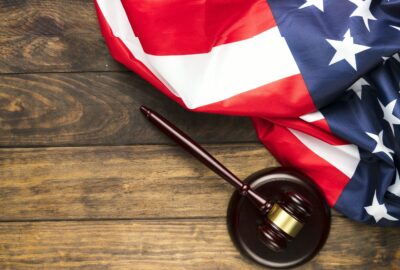
COVID-19 has had an enormous impact on the way in which we now work. Law firms were forced to take the leap into the unknown over a year ago and, for the first time, operate fully remotely with hundreds of employees working from home. And for many firms, the new way of work has proved to be highly successful and profitable too.
As we start to plan for the transition back into life within the office environment, will the learnings from the pandemic inspire the legal industry to re-shape the way traditional firms function? Is it possible to make the shift to embed a remote working culture into law and can it work?
This is just one of the questions we put to Mark Machray, Director of Growth and Development at Keystone Law, who have been operating a remote working model for the last 15+ years.
Do you believe that the learnings from lockdown will inspire the legal industry to re-shape the way in which traditional law firms function?
It appears that law firms have very good intentions in creating more flexible working arrangements for their employees when restrictions are lifted, but one wonders how long this will this last?
The legal industry is incredibly conservative and hard-wired habits are very difficult to break. Even if the opportunity to work remotely is offered by management, the question remains; will it be culturally acceptable to do so? Without that paradigm shift in mind-set firms run the risk of creating a two tier system with those lawyers choosing to work remotely being forgotten and missing out on the opportunities taken by those sitting in the office.
How does the lack of physical face to face time that inevitably comes with a fully remote working structure, impact the ability for lawyers at Keystone to get to know one another?
I find the presumption that lawyers working in an office know each other well, rather amusing. How often does a lawyer see colleagues working on the floor above or the floor below? Indeed there is little opportunity to talk to lawyers on the same floor, save for those working very close by. And is the office environment really the best place to build the relationships necessary to engender the trust and confidence, vital to effective collaboration? An office doesn’t create a collegiate culture, it’s Management understanding the importance of community and driving initiatives which help build knowledge and understanding. Keystone has the advantage of operating a business model which draws to it entrepreneurial, emotionally intelligent lawyers, but the secret to its success has been understanding the importance of bringing those lawyers together regularly through all sorts of structured and social events, and to help them get to know each other really well. It’s not simply about the amount of face time, it’s about the quality of that time and quality time is much more easily found outside the office.
Mark, you have been with Keystone for over 10 years. What draws lawyers to Keystone over the more traditionally structured law firm?
With any proposition it’s a combination of the ‘push factors’ and the ‘pull factors’. On the one hand lawyers are looking to get away from management responsibilities and the endemic politics found to a greater or lesser extent in all conventional firms. On the other, they are looking for proper financial reward for the value they bring to their firm and to have the freedom and autonomy to practice on their own terms.
Keystone’s working model is designed to attract senior lawyers who can generate their own work. Are there any opportunities for more junior lawyers at Keystone?
Yes, increasingly so. Over the years Keystone’s reputation and credibility has grown along with a greater acceptance of the business model we operate. That move towards the mainstream has enabled us to attract lawyers with much larger practices than we once did. Initially we employed junior lawyers to provide ad hoc support to our consultants when they got very busy. However, increasingly our consultants started to employ their own juniors so as to more effectively leverage their time. This evolution of teams operating together under the Keystone brand is very much the future of the firm and with it comes the opportunity for junior lawyers to develop their careers at Keystone.
How has the pandemic impacted Keystone’s operations?
Lockdown was business as usual for us. We were able to continue to work efficiently and deliver a full legal service to our clients. What was pivotal in allowing us to do this was our already established remote IT structure. A huge benefit for us in comparison to many other big firms who undertook the immense logistical challenge of setting up remotely across all offices around the world. Interestingly of course the pandemic has given all the lawyers the opportunity to sample the benefits and efficacy of remote working and with it a sense of how the Keystone model works in practice.
What, or who, is your biggest inspiration?
The Prophet, by Kahlil Gibran. Beautifully written insights into every aspect of the human condition.
What have you learned about yourself during this pandemic, or what’s the biggest lesson you will take away from this experience.
The importance of community. Having had the usually community of friends and family removed from one’s life, finding new community amongst one’s neighbours has been one of the great silver linings of this extraordinary year.
What’s the first restaurant you’ll be heading to once open and what will you order?
L’Escargot in Soho; it's where we host our Keystone lunches and has provided many happy memories and enjoyable conversations over the years. I will be ordering their delicious boeuf bourguignon with a very large glass of red wine!


